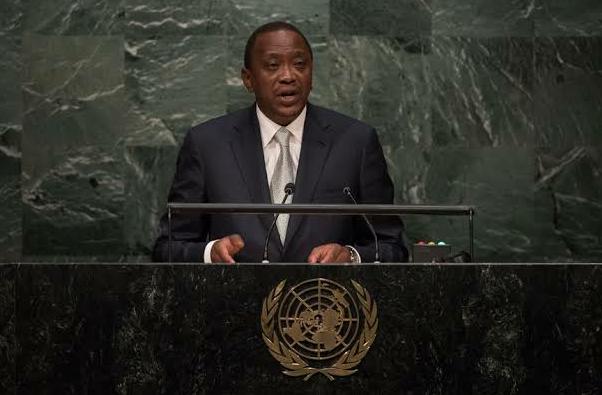NAIROBI, Kenya, Jan 6- Let me begin by congratulating you, my brother, on your assuming the Presidency of the Security Council for the Month of January 2021.
I also congratulate India, Mexico, Ireland and Norway with whom we have joined the Security Council as elected members for the period 2021-2022.
I thank their Excellencies, Mr. Antonio Guterres, Mr. Moussa Faki Mahamat, and former President Ellen Johnson Sirleaf, for their informative briefings.
Mr. President,
This High-Level debate demands we revisit the very reason the United Nations exists: how multilateralism can be made fit-for-purpose in maintaining peace today.
The fact that the Security Council spends the bulk of its agenda on conflicts in Africa, is testament to the fragility of many countries and regions in the continent.
If we are to be true to the founding Charter of the UN, it follows, therefore, that we should invest more in building more effective approaches, or revitalizing existing mechanisms, that maintain peace and anchor stability in Africa.
In Africa, the capacity of the state, in the most fragile situations, has not grown sufficiently to effectively control every part of its territory. Its ability to deliver public goods to all citizens has also been limited. In the meantime, the most dangerous challenges facing countries have multiplied.
Globalisation may have expanded our economic opportunities but it has also further shrunk the role of the state. To add to the fragility, multilateral institutions have often lacked the resources, the know-how, and fit-for-purpose mandates to effectively support states facing dire security challenges.
The competence and reach of the state is the single most important national and global asset in maintaining peace in fragile situations.
Mr. President,
If we take, as an example, the responses to the COVID-19 pandemic, the biggest difference is not between Eastern and Western approaches. It is between states that can provide a strong bridge to allow their citizens and economies to successfully navigate extreme crises versus those that cannot muster such an effort.
In countries afflicted by war, or recovering from it, peace will only be maintained, if they are enabled to be strong enough to win control of their territory and provide public services.
The multilateral system, as embodied in the UN, will therefore need to help fragile states attain such capacities. The political processes that build peace, and binding resolutions by this Council, should include measurable state strengthening elements.
Mr. President,
Let me close with four proposals to building a multilateralism fit for our times.
First, we must leverage the knowledge and buy-in of stakeholders closest to the crisis. That means listening to, and empowering, national actors committed to building bipartisan and non-partisan political bridges to peace and security.
This focus should dovetail with the Security Council prioritising closer cooperation with mechanisms such as the African Union and the Regional Economic Communities.
Secondly, the Security Council, and associated UN bodies, should do more to strengthen the capacity of key state institutions during post-conflict reconstruction. The Peacebuilding Commission will play an invaluable role, which Kenya will support closely over the next two years.
Third, we should not let the COVID-19 pandemic be a major driver of insecurity. If fragile countries do not get prompt access to the vaccine, their economic problems will likely turn into political and security challenges.
Affordable and quick access to the COVID-19 vaccine should, therefore, be regarded as a valuable investment in peace.
I commend you, Mr. President, for the pivotal role that Tunisia played in the adoption of Resolution 2532 by which the Council recognized the grave and devastating impact of the COVID-19 pandemic, especially in countries in conflict or post-conflict situations.
My fourth proposal is that we must strengthen the role of Africa and the Global South in the multilateral system.
The road to revitalising multilateralism to effectively deliver global peace and security runs through a united Africa, and an active and engaged Global South.
In this regard, I applaud our fellow elected member, Saint Vincent and the Grenadines for becoming the plus one of the Africa 3. This action allows the hundreds of millions in Africa, the Caribbean, and other parts of the world, to believe that their voice in the Security Council matters.
That belief will lead to greater faith in the United Nations and its decisions. It is for this reason that I have tasked our Mission to the UN to be a strong voice for a united Africa, for the Global South, and the General Assembly.
Once again I thank you, Mr. President, for the invitation, and thank all members for their attention.
Want to send us a story? Contact Shahidi News Tel: +254115512797 (Mobile & WhatsApp)


